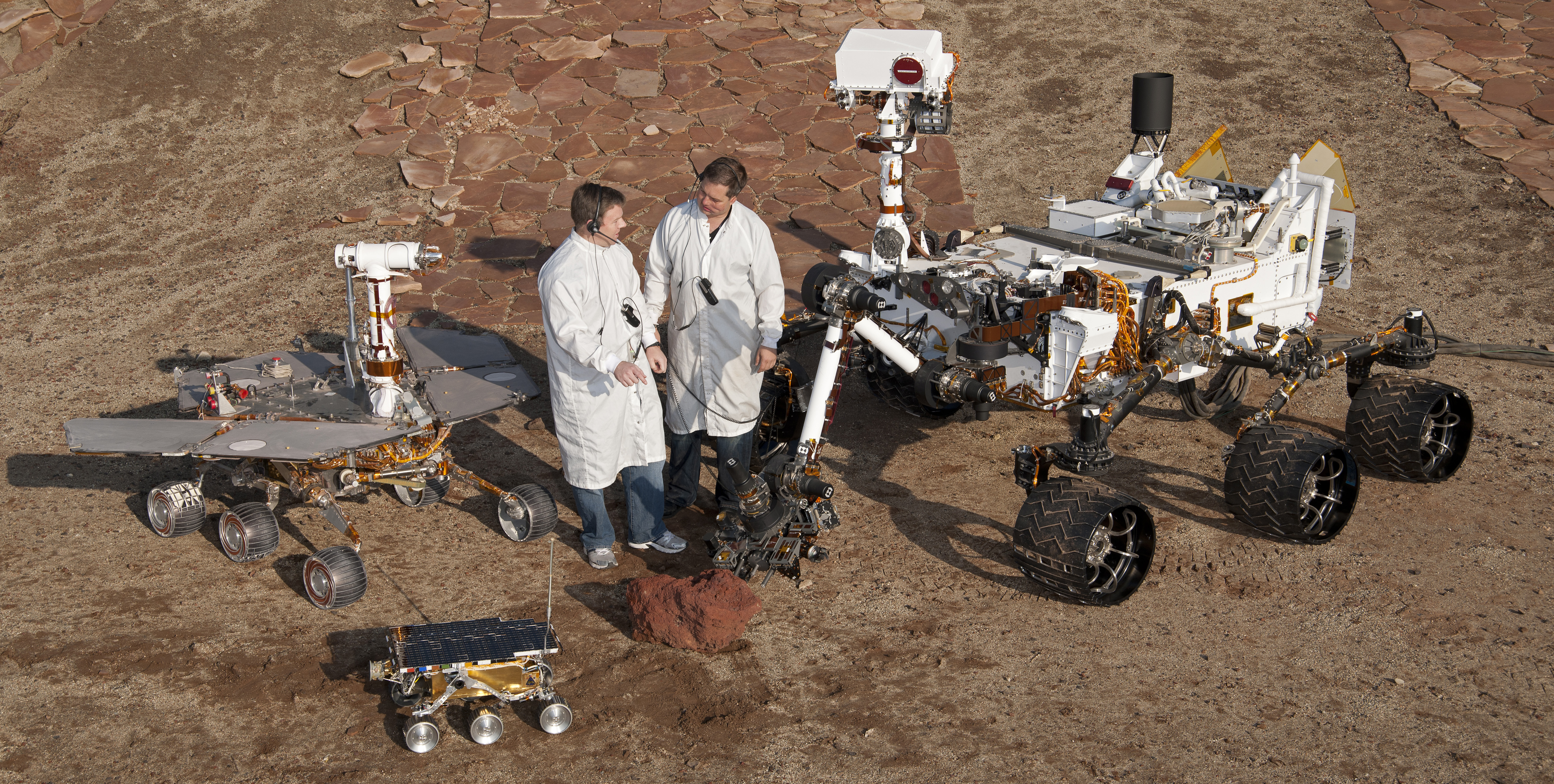|
King Fahd University Of Petroleum And Minerals
King Fahd University of Petroleum and Minerals (KFUPM) is a nonprofit research university in Dhahran, Eastern Province, Saudi Arabia. Founded near the earliest local oil fields as the College of Petroleum & Minerals (1963) in response to the booming energy industry of Saudi Arabia, the University centers mainly around science, engineering, and management in order to advance the Kingdom's petroleum and mineral industries. The university ranks 2nd and 8th globally in petroleum and mineral & mining engineering according to the QS subject rankings, respectively. As of 2024, the university has been ranked 4th globally by the National Academy of Inventors (NAI), first globally in the Student Unmanned Aerial Systems Ranking (SUAS), and first in the Middle East & North Africa (MENA) region according to the QS Ranking. History KFUPM is a premier university in Saudi Arabia, the Middle East, and North Africa regions. KFUPM was established on September 23, 1963, by a Saudi royal decre ... [...More Info...] [...Related Items...] OR: [Wikipedia] [Google] [Baidu] [Amazon] |
Nonprofit Organization
A nonprofit organization (NPO), also known as a nonbusiness entity, nonprofit institution, not-for-profit organization, or simply a nonprofit, is a non-governmental (private) legal entity organized and operated for a collective, public, or social benefit, as opposed to an entity that operates as a business aiming to generate a Profit (accounting), profit for its owners. A nonprofit organization is subject to the non-distribution constraint: any revenues that exceed expenses must be committed to the organization's purpose, not taken by private parties. Depending on the local laws, charities are regularly organized as non-profits. A host of organizations may be non-profit, including some political organizations, schools, hospitals, business associations, churches, foundations, social clubs, and consumer cooperatives. Nonprofit entities may seek approval from governments to be Tax exemption, tax-exempt, and some may also qualify to receive tax-deductible contributions, but an enti ... [...More Info...] [...Related Items...] OR: [Wikipedia] [Google] [Baidu] [Amazon] |
Master Of Science
A Master of Science (; abbreviated MS, M.S., MSc, M.Sc., SM, S.M., ScM or Sc.M.) is a master's degree. In contrast to the Master of Arts degree, the Master of Science degree is typically granted for studies in sciences, engineering and medicine and is usually for programs that are more focused on scientific and mathematical subjects; however, different universities have different conventions and may also offer the degree for fields typically considered within the humanities and social sciences. While it ultimately depends upon the specific program, earning a Master of Science degree typically includes writing a thesis. The Master of Science degree was introduced at the University of Michigan in 1858. One of the first recipients of the degree was De Volson Wood, who was conferred a Master of Science degree at the University of Michigan in 1859. Algeria Algeria follows the Bologna Process. Australia Australian universities commonly have coursework or research-based Master o ... [...More Info...] [...Related Items...] OR: [Wikipedia] [Google] [Baidu] [Amazon] |
Robotics
Robotics is the interdisciplinary study and practice of the design, construction, operation, and use of robots. Within mechanical engineering, robotics is the design and construction of the physical structures of robots, while in computer science, robotics focuses on robotic automation algorithms. Other disciplines contributing to robotics include electrical engineering, electrical, control engineering, control, software engineering, software, Information engineering (field), information, electronics, electronic, telecommunications engineering, telecommunication, computer engineering, computer, mechatronic, and materials engineering, materials engineering. The goal of most robotics is to design machines that can help and assist humans. Many robots are built to do jobs that are hazardous to people, such as finding survivors in unstable ruins, and exploring space, mines and shipwrecks. Others replace people in jobs that are boring, repetitive, or unpleasant, such as cleaning, ... [...More Info...] [...Related Items...] OR: [Wikipedia] [Google] [Baidu] [Amazon] |
Business Analytics
Business analytics (BA) refers to the skills, technologies, and practices for iterative exploration and investigation of past business performance to gain insight and drive business planning. Business analytics focuses on developing new insights and understanding of business performance based on data and statistical methods. In contrast, business intelligence traditionally focuses on using a consistent set metrics to both measure past performance and guide business planning. In other words, business intelligence focuses on description, while business analytics focusses on prediction and prescription. Business analytics makes extensive use of analytical modeling and numerical analysis, including explanatory and predictive modeling, and fact-based management to drive decision making. It is therefore closely related to management science. Analytics may be used as input for human decisions or may drive fully automated decisions. Business intelligence is querying, reporting, online ... [...More Info...] [...Related Items...] OR: [Wikipedia] [Google] [Baidu] [Amazon] |
Machine Learning
Machine learning (ML) is a field of study in artificial intelligence concerned with the development and study of Computational statistics, statistical algorithms that can learn from data and generalise to unseen data, and thus perform Task (computing), tasks without explicit Machine code, instructions. Within a subdiscipline in machine learning, advances in the field of deep learning have allowed Neural network (machine learning), neural networks, a class of statistical algorithms, to surpass many previous machine learning approaches in performance. ML finds application in many fields, including natural language processing, computer vision, speech recognition, email filtering, agriculture, and medicine. The application of ML to business problems is known as predictive analytics. Statistics and mathematical optimisation (mathematical programming) methods comprise the foundations of machine learning. Data mining is a related field of study, focusing on exploratory data analysi ... [...More Info...] [...Related Items...] OR: [Wikipedia] [Google] [Baidu] [Amazon] |
Energy Storage
Energy storage is the capture of energy produced at one time for use at a later time to reduce imbalances between energy demand and energy production. A device that stores energy is generally called an Accumulator (energy), accumulator or Battery (electricity), battery. Energy comes in multiple forms including radiation, chemical energy, chemical, gravitational potential energy, gravitational potential, Electric potential energy, electrical potential, electricity, elevated temperature, latent heat and kinetic energy, kinetic. Energy storage involves converting energy from forms that are difficult to store to more conveniently or economically storable forms. Some technologies provide short-term energy storage, while others can endure for much longer. Bulk energy storage is currently dominated by hydroelectric dams, both conventional as well as pumped. Grid energy storage is a collection of methods used for energy storage on a large scale within an electrical power grid. Common e ... [...More Info...] [...Related Items...] OR: [Wikipedia] [Google] [Baidu] [Amazon] |
Renewable Energy
Renewable energy (also called green energy) is energy made from renewable resource, renewable natural resources that are replenished on a human lifetime, human timescale. The most widely used renewable energy types are solar energy, wind power, and hydropower. Bioenergy and geothermal power are also significant in some countries. Some also consider Nuclear power proposed as renewable energy, nuclear power a renewable power source, although this is controversial, as nuclear energy requires mining uranium, a nonrenewable resource. Renewable energy installations can be large or small and are suited for both urban and rural areas. Renewable energy is often deployed together with further electrification. This has several benefits: electricity can heat pump, move heat and Electric vehicle, vehicles efficiently and is clean at the point of consumption. Variable renewable energy sources are those that have a fluctuating nature, such as wind power and solar power. In contrast, ''contro ... [...More Info...] [...Related Items...] OR: [Wikipedia] [Google] [Baidu] [Amazon] |
Hydrogen Storage
Several methods exist for storing hydrogen. These include mechanical approaches such as using high pressures and low temperatures, or employing chemical compounds that release H2 upon demand. While large amounts of hydrogen are produced by various industries, it is mostly consumed at the site of production, notably for the synthesis of ammonia. For many years hydrogen has been stored as compressed gas or cryogenic liquid, and transported as such in cylinders, tubes, and cryogenic tanks for use in industry or as propellant in space programs. The overarching challenge is the very low boiling point of H2: it boils around 20.268 K (−252.882 °C or −423.188 °F). Achieving such low temperatures requires expending significant energy. Although molecular hydrogen has very high energy density on a mass basis, partly because of its low molecular weight, as a gas at ambient conditions it has very low energy density by volume. If it is to be used as fuel stored on board a vehic ... [...More Info...] [...Related Items...] OR: [Wikipedia] [Google] [Baidu] [Amazon] |
Artificial Intelligence
Artificial intelligence (AI) is the capability of computer, computational systems to perform tasks typically associated with human intelligence, such as learning, reasoning, problem-solving, perception, and decision-making. It is a field of research in computer science that develops and studies methods and software that enable machines to machine perception, perceive their environment and use machine learning, learning and intelligence to take actions that maximize their chances of achieving defined goals. High-profile applications of AI include advanced web search engines (e.g., Google Search); recommendation systems (used by YouTube, Amazon (company), Amazon, and Netflix); virtual assistants (e.g., Google Assistant, Siri, and Amazon Alexa, Alexa); autonomous vehicles (e.g., Waymo); Generative artificial intelligence, generative and Computational creativity, creative tools (e.g., ChatGPT and AI art); and Superintelligence, superhuman play and analysis in strategy games (e.g., ... [...More Info...] [...Related Items...] OR: [Wikipedia] [Google] [Baidu] [Amazon] |
Dammam No
Dammam (Arabic: الدمام ad-Dammām) is a List of cities and towns in Saudi Arabia, city and List of governorates of Saudi Arabia, governorate, and the capital of the Eastern Province, Saudi Arabia, Eastern Province of Saudi Arabia. Located on the coast of the Persian Gulf, it had a population of 1,386,166 as of 2022, making it the List of cities and towns in Saudi Arabia#Alphabetical list of cities and towns, country's fifth-largest city after Riyadh, Jeddah, Mecca, and Medina. Dammam forms the core of the Dammam metropolitan area, also known as Greater Dammam, which includes the neighboring List of governorates of Saudi Arabia, governorates of Dhahran, Khobar, Qatif. , the metropolitan area's population was 2,743,318, making it the List of cities and towns in Saudi Arabia#List of Metro Cities, third-largest in the country. Overview The area that eventually became Dammam was settled by the Dawasir tribe around 1923, with permission of King of Saudi Arabia, King Ibn Saud. Th ... [...More Info...] [...Related Items...] OR: [Wikipedia] [Google] [Baidu] [Amazon] |
AACSB
The Association to Advance Collegiate Schools of Business (AACSB) is an American professional and accreditation organization. It was founded as the American Assembly of Collegiate Schools of Business in 1916 to provide accreditation to business schools. AACSB is one of three business program accreditors. Not all members of the association are accredited; the association also does not accredit for-profit schools. In 2019, the association received ISO 9001 certification. The association was once known as the American Association of Collegiate Schools of Business and as the International Association for Management Education. History The American Assembly of Collegiate Schools of Business was founded as an accrediting body in 1916 by a group of seventeen American universities and colleges. The first accreditations took place in 1919. For many years, the association accredited only American business schools, but in the latter part of the twentieth century adopted a more inter ... [...More Info...] [...Related Items...] OR: [Wikipedia] [Google] [Baidu] [Amazon] |
ABET
ABET (pronounced A-bet), formerly known as the Accreditation Board for Engineering and Technology, Inc., is a non-governmental accreditation organization for post-secondary programs in engineering, engineering technology, computing, and applied and natural sciences. ABET had accredited 4,674 programs across 920 organizations in 42 countries. ABET also accredits online educational programs. History In 1932, ABET was established as the American Engineers' Council for Professional Development (ECPD). The organization evaluated its first engineering program in 1936, and by 1947, 580 programs had been accredited across 133 institutions. In 1980, the ECPD changed its name to the Accreditation Board for Engineering and Technology, Inc. In 1985, the organization helped establish the Computing Sciences Accreditation Board ( CSAB), one of ABET's largest member societies with over 300 programs. ABET began operating and doing business solely under their acronym in 2005, using “Accredit ... [...More Info...] [...Related Items...] OR: [Wikipedia] [Google] [Baidu] [Amazon] |




